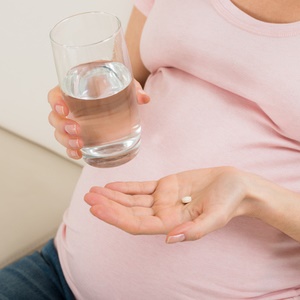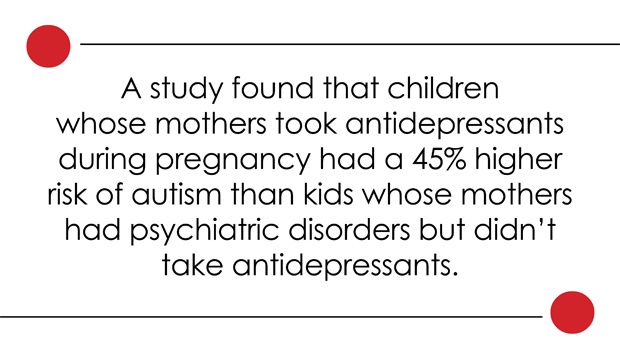
The psychological and physical connection between a mother and her unborn child is profound. For all practical purposes they are one body, and what affects the mother cannot but affect the foetus.
Some aspects during pregnancy can increase an unborn baby’s risk for autism. In the long-standing debate over whether antidepressants are safe to take during pregnancy, a new study suggests that exposure to the drugs in the womb might bump up a child's risk of autism.
Autism is a complex developmental disorder traditionally defined by a core triad of impairments, relating to communication, socialisation and behaviour.
Children who are affected have communication and socialisation difficulties, as well as restricted and repetitive interests and behaviours. It is important to note that all children with autism also have sensory dysfunction.
Risk is small
The risk of autism was 45% higher for kids whose moms took antidepressants, compared to kids born to mothers with psychiatric disorders who weren't prescribed antidepressants, the study found.
"We found consistent results pointing towards a small effect of antidepressants with autism, especially higher functioning forms of autism without intellectual disability," said lead researcher Dheeraj Rai. He is a senior lecturer in psychiatry with the University of Bristol in the United Kingdom.
"We think it is important to keep in mind the absolute risk, which is small," Rai said. "Over 95% of women in the study who took antidepressants during pregnancy did not have a child with autism."
Also, the study wasn't designed to prove a cause-and-effect relationship, and only found an association between antidepressants and the risk of autism.
What's more, further analysis by the researchers indicated that forgoing antidepressants during pregnancy would not cause a drastic reduction in overall autism rates, noted Thomas Frazier, chief science officer for Autism Speaks, a nonprofit autism advocacy organisation.
"It turns out you would prevent 2% of autism cases" if no pregnant women ever took antidepressants, Frazier said. "It's definitely not a major contributor," Frazier added. "It appears to be a significant and real relationship, but it's not a strong one in terms of how many cases of autism this would prevent."
Also some good news
Another recent study, published online in JAMA Psychiatry, had better news for depressed moms-to-be. That research found no statistically significant difference in intellectual disability in children born to mothers taking antidepressants compared to kids whose moms didn't take the drugs.
Antidepressants are also associated with other risks, and according to a previous Health24 article, Finnish researchers found that women taking fluoxetine (Prozac) and paroxetine (Paxil) were slightly more likely to give birth to babies with specific types of heart defects.
A further study found positive connection between antidepressants and pregnancy, suggesting that women with a mental health disorder taking commonly prescribed antidepressants during pregnancy appear to have fewer delivery complications.
For the current study, Rai and his research team analysed data from more than 254 000 children aged four to 17 living in Stockholm between 2001 and 2011.
Almost 5 400 of the children were diagnosed with autism. More than 3 300 of the children were exposed to antidepressants during pregnancy. And more than 12 000 children were born to mothers with psychiatric disorders who weren't taking an antidepressant in pregnancy, the study revealed.
About 4% of children exposed to antidepressants had been diagnosed with autism. Meanwhile 2.9% of children born to a woman with a history of psychiatric problems who didn't take antidepressants during pregnancy developed autism.
Antidepressants were more strongly associated with cases of autism that didn't include intellectual disability, the researchers said.
Links unclear
No one is certain why antidepressants might be linked to autism, but most antidepressants act by increasing brain levels of a neurotransmitter called serotonin, Rai and Frazier said.
"Serotonin is important in brain development and higher levels have been observed in children with autism," Rai said. He added that animal research has shown that exposing animal foetuses to antidepressants that boost serotonin levels causes autism-like symptoms in the animals.
At the same time, Rai said it is too early to rule out the possibility that depression itself increases the risk of autism, rather than the medications prescribed to treat depression.
Rai and Frazier also agreed that pregnant women with depression should not stop taking their medicine without first talking it over with their doctor.
"There could be severe risks of stopping or not taking antidepressants during pregnancy both to the mother and the foetus, so the benefits of these medications for mothers who need them should not be forgotten," he said.
Read more:




 Publications
Publications
 Partners
Partners















